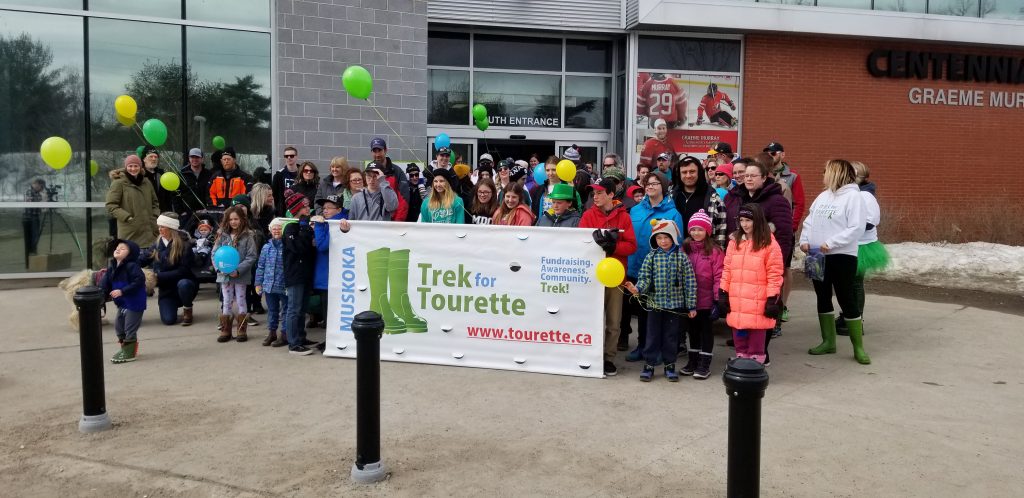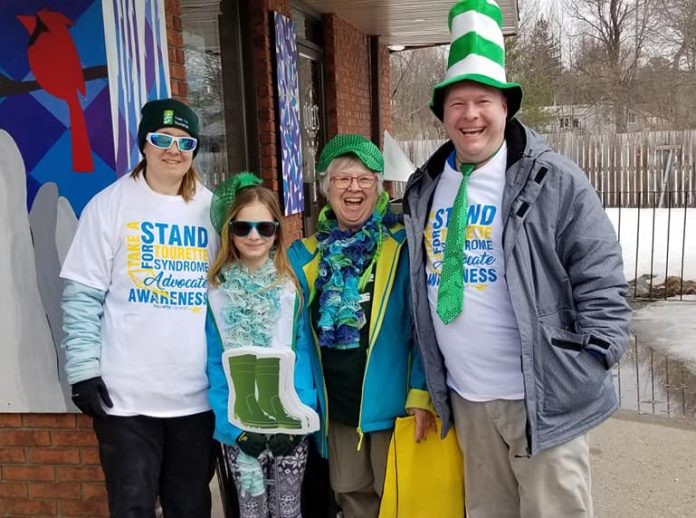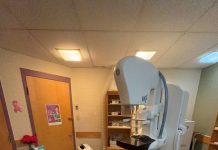Since 2009, the Trek for Tourette has been a way for Canadians with Tourette Syndrome (TS) to come together while raising awareness for the disorder, and after two years away, Muskoka participants are thrilled to be back in person for the event this Saturday.
TS is a neurological disorder characterized by tics, which are involuntary movements and sounds. For many years, the prevalence of TS was thought to be one in 100,000 people, but now, experts believe as many as one in 100 people have TS. Shawn Forth, leader of the Muskoka TS resource unit, said the disorder is often misunderstood because of stereotypes about people with TS swearing uncontrollably or barking like a dog. While that may be the reality for about 10 to 20 per cent people with TS, many others experience more mild symptoms.
“Essentially, your brain is sending signals to the muscles of your body that you don’t intend to send,” Forth said. “It presents itself with tics, twitches, odd noises and for someone that society doesn’t realize has been diagnosed with Tourette’s, it can really present itself as very weird and quirky.”
The Trek for Tourette is held at the end of May each year as part of TS Awareness Month from May 15 to June 15. The five-kilometre trek starts at 1 p.m. on May 28, beginning at the Rotary Pavilion in Gull Lake Park and continuing on through downtown Gravenhurst. The Muskoka Trek has raised over $30,000 since its inception and organizers hope to raise another $3,000 to $5,000 this year.
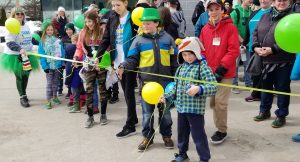
Trek participants can register online and donations will be accepted even after the walk on May 28. Though the event is outdoors, the committee behind the walk is still keeping COVID precautions in mind, so masks and social distancing are recommended but not required.
Forth said that having an active TS support group has helped raise awareness in Muskoka, but it’s still not completely known or understood. He works as a teacher for Grade 2 students in Bracebridge, and he’s the only person in his school that he’s aware of with TS.
Many people with TS go undiagnosed, which could be in part caused by doctors not recognizing symptoms, he said, or families thinking individuals are simply quirky when in fact they have a “neurological uniqueness” like TS. It can be hard for parents, teachers and others without the disorder to understand the neurology of it, which is a part of what makes the trek and events like it so important.
“For the last two years, we had to do it virtually, even our monthly support group meetings were done virtually, and it’s just not the same,” he said. “For many of the participants in our support group and our trek, it’s families who have been diagnosed for years. They are not necessarily needing direct support every month, but it’s more a matter of checking in on their friends.”
For people who don’t know anyone with TS, Forth said the trek is a chance to come together with the community, take a walk and learn about a new perspective. For those who do know someone with TS, or for those who have a diagnosis of the disorder, it’s an opportunity to connect with like-minded people of all ages and celebrate the successes within the community.
An important thing to understand about the disorder is that it’s something people can learn to live and succeed with, whether symptoms improve, get worse or stay the same, Forth said. One of the difficulties of TS is that it’s often diagnosed alongside other disorders such as ADHD and autism spectrum disorder.
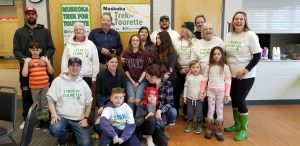
“No two people with Tourette Syndrome are the same,” Forth said. “I have a combination of Tourette Syndrome, obsessive compulsive disorder, and tactile difficulties, where someone else may have a completely different menu, if you will, of diagnoses.”
Along with raising awareness and dispelling misinformation about life with TS, the trek also helps fund Tourette Canada, the national charity that provides advocacy, support and resources for people with TS and related conditions as well as their families. Though there were virtual versions of the event held for the last two years, it’s hard to motivate people to get involved through online-only efforts, Forth said.
Tourette Canada doesn’t receive government funding, so the organization relies on fundraising to offer their services. The pandemic significantly impacted their ability to bring in donations, so this year’s trek will help to reestablish support for their programs while also raising awareness for TS in general.
“The focus really is very much this year on fundraising to try to help build up the national organization again,” he said, “but it’s also great to get together with friends and to celebrate in the community and to normalize the experience of those with Tourette Syndrome.”
To register for or make a donation to the Trek for Tourette, visit Tourette Canada’s website.
